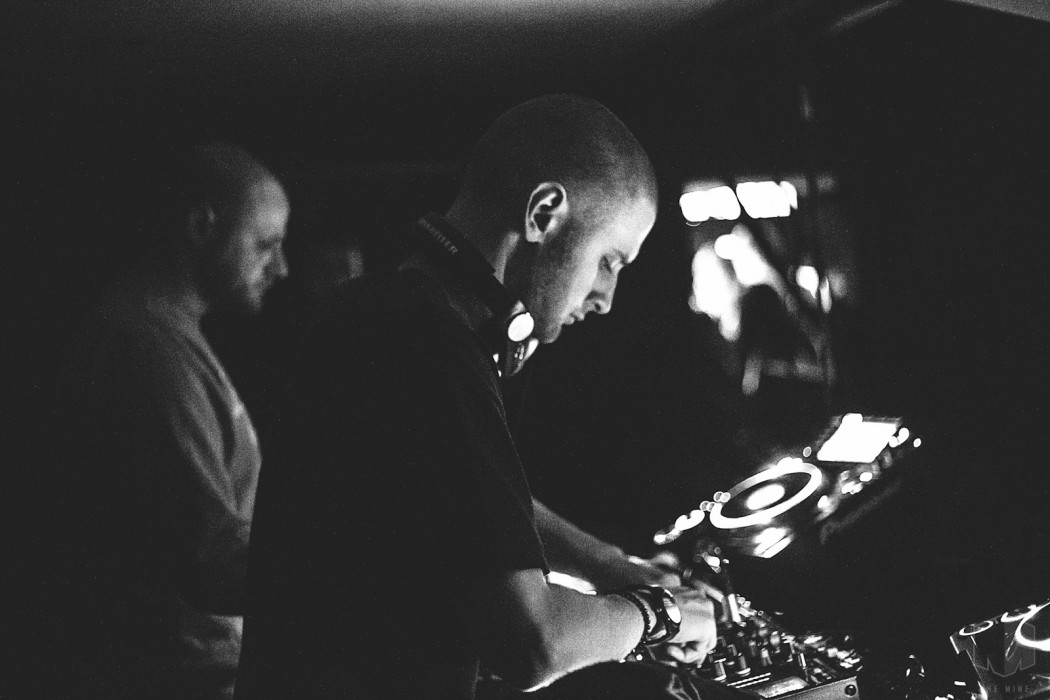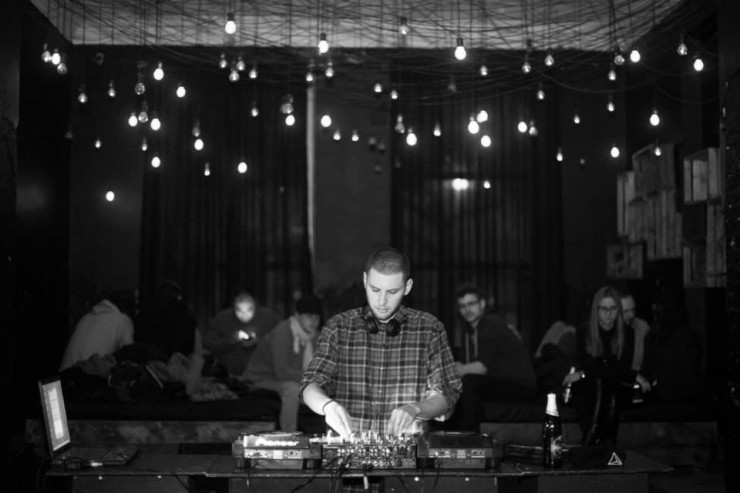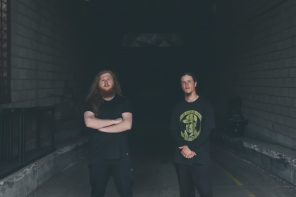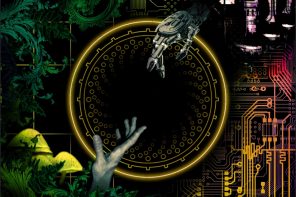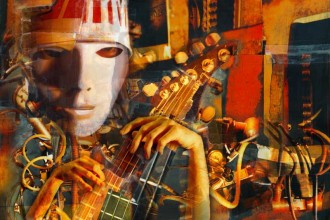Occult has been producing high quality underground bass music for a decade, but few people know much about him in the states. We thought it was time to find out who is behind the minimal but compelling music that is so highly respected because of its depth and detail.
Many modern producers will try to overwhelm your senses with a barrage of sounds that end up blending together into a dissonant mess or predictable pattern. Occult focuses instead on stark, haunting sounds that stand by themselves. His music is as much about the space between the sounds, and the anticipation of the next, as the sounds themselves. This creates tension and drama in a more subtle and complex way and gives the music a more organic feel.
Ranging from deep dubstep to hip-hop infused downtempo, he is a master of atmospheres, creating moods with layers of pads and synths. Check out some samples of his work and what he had to say:
There is little information about who you are or your background online. Why do you prefer that kind of privacy, and what can you tell us about the man behind the project?
It’s funny you say that actually, it’s not intentional. I am against the idea of huge amounts of personal data being online, especially with the collection of our data from certain agencies. There is no need for me or anybody to be overly revealing about their own life. In a way, the whole world is watching. Opinions, your personal life and so on can often get you in trouble online.
My name is Ollie, I’m from the UK but I currently spend a lot of time in Lithuania. I’ve made music and played with audio for a little over ten years. I like to use my interests to inspire my work; I like conceptual art and music. I disagree with most of the world, and I want to live in the middle of nowhere for the rest of time.
What have you set out to do in music – what are your goals?
I like to achieve certain sonic goals with each piece I release. Recently I’ve been trying to encourage a listener to slow down, appreciate a piece of music for longer and open their ears to the detail that goes into my music. A lot of computer music comes and goes at incredible speeds carrying no concept but to gain dance floor popularity for a month or two, which is a shame because there is so much you can do with audio and technology.
I’ve also been spending a lot of time thinking about independence as an artist. Online stores and labels take huge percentages from a collection of MP3’s that you sign a barely legal contract to “distribute.” If more of us were to start our own selling spaces and methods, engage in more limited physical and artistic ventures, then the electronic music world would become very interesting and much less stagnant.
I’m also trying to find a balance between synthesised and natural sounds, fantastic and domestic sounds. There was so much experimentation and optimism in what electronic might be about 20-30-40 years ago, and I would love to see us adopt that attitude again. Some might say the emergence of a genre and religious attachment to the idea of a genre is what slowed things down. I think idolization plays a part too.
You’ve had some interesting bookings lately, which has been a favorite experience and why?
I really like playing the festivals.. Boom festival was an amazing experience. The work they put into taking care of the environment and the infrastructure of the festival is very well done. But I also really enjoy the small weekly parties called Rastadienis with my friends in Lithuania because you can experiment and play new things each week. Recently I had a really good time in Riga, Latvia. Very friendly people and loads of energy in the party that I haven’t seen that in a long time.
What unique techniques or approaches makes you different as a producer?
Strong attention to texture, I build on layers of noise and atmosphere until a track sounds right to me. I think a track without that is naked and overly digital. I really dislike thin music. I ignore many of the audio mixing and mastering rules. I have a very hip hop approach to making music. I like to make things bang, and my music usually sounds stupid when mixed with other tunes.
I like to sample weird things and either hide them inside the music or manipulate them and use them as main parts. For example in my track “’95”, I put a clip from the game “Abe’s Odyssee” for those who also enjoyed the game. I take field recordings and just throw them into the song and let them play throughout, or I take recorded vocals from my friends singing and put them in. Surprisingly they almost always fit instantly, and maybe I know they will subconsciously. I like to mix Lo-Fi and cleanliness, making a weird mish mash of sounds. I try to combine a number of styles of music and techniques for mixing to create something special.
The word “Occult” has come to mean many different things today, anything from the supernatural to devil worship. What connotations of the word do you relate to and wish to invoke?
Interesting question. As a kid I always liked ghosts and zombies and witches and cults. I like the idea of some esoteric and forbidden knowledge known only by some group of druids or something. A googled definition sums up what I wanted to invoke perfectly – “of, involving, or relating to supernatural, mystical, or magical powers or phenomena.” I guess it worked better when I was trying to make very dark music, but you start to personify the name as time goes on.
What plugins/VSTs have you come to love and need most and why?
Camelphat, Camelspace, sound Shifter Pitch, Logic’s Tape Delay, Logic’s Space Designer, and Logic’s Sample Delay are basic parts in every one of my songs. Recently I really like two free plugins called Fracture and Hysteresis by GlitchMachines. You can take any boring sound and make it an amazing atmosphere, or glitch out a drum break. Paulstretch is great. I also really like Glitch2 by Illformed for the same reasons, but I use for more tame loops and musical elements. Recently I got into the well known Sausage Fattener and Izotope’s Vinyl, which is really cool for sending sounds back in time. Obviously I like the Waves bundle too. I keep FL studio on my computer so I can use the “Rearranging drum loops” preset on the Granulizer. It’s perfect for making hip hop chops. I also have a copy of Logic X so I can use the Midi Arppegiator. As of late I’ve also been running sounds through a little mixer with effects on it as well as some guitar pedals.
How is being an artist different in a smaller country compared to the UK? What are the advantages and challenges?
These days with the internet and big international scenes it doesn’t matter where you’re from, if you make really good music then you can gain recognition as an artist. When trying to enter a scene there is a big difference, most popular dance music scenes are particularly anglo-centric and cliquey. If you’re not there personally, then you’re simply not accepted. I know some amazing artists that have worked for 20 years and seen almost no outcome. It can be difficult to find the equipment you need in certain countries, and the difference in wages can make the process of getting what you need hugely difficult. It’s interesting that gaining national recognition can (in some cases) destroy your chances of gaining international recognition too. For many reasons a lot of people I meet think the UK is the land of electronic music, and we tour the country like celebrities making thousands of pounds, but it’s quite the opposite for an experimental artist.
The layering technique of noise and atmosphere that you describe as making a track “deeper” and more interesting.. What is the key to that, and what advice would you give other producers trying to develop this?
Listening to everything, including old and new music of all kinds (and I really mean all), but also the world around you. When you listen to older music that they spent hundreds of hours composing, recording to tape and pressing to a record, there is a huge amount of texture and atmosphere, often unintentionally and sometimes it’s just bleeding from a drum recording. It’s the reason why there are so many vinyl purists. There is great texture, and it makes you feel something. Unfortunately I can’t afford that kind of production process, so I have to recreate it and expand upon it in an intentional, creative manner. This technique makes you build a kind of place that the music lives, a fictional world that you enter when you listen, instead of just really loud drums and bass blasting out of a sound system that sounds crap when you listen to it properly.
Secondly, listening to the world, hearing the ambient music in everything because only then will you begin to cherish it. I use a Tascam recorder recently but I also use my phone for a more driven field recording. When you listen back months later you don’t even remember what or why you were recording, but it’s amazing and very interesting. You can insert a great memory or a bad memory into your music, making it uniquely yours. No one else has a recording of that moment. Sometimes machinery has interesting musical tones if you care to listen, sometimes the rain is landing on a very percussive piece of metal, sometimes the traffic crossing plays a really cool beeping sound, sometimes just the soundscape of the city or forest sounds great – it would be a waste not to record that. Bird song and ocean waves have been played out, try to avoid them.
When making computer music, you need to fill the frequency range to make it satisfying. Often subconsciously the listener can tell when there is a big frequency gap; when you fill the empty parts with texture it becomes complete. We use so many sample packs, but we hear unique sound 24 hours a day and ignore it.
How do you want people listening to your music to feel?
Like they’ve reached the bonus level.
Soundcloud.com/Occultscience

